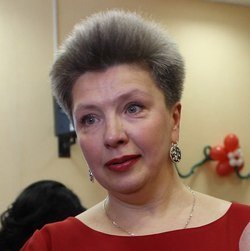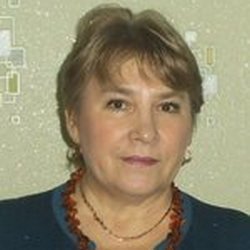“They dream of distance learning never returning!”
Parents of schoolchildren consider it possible to learn foreign languages remotely — they can't do without a private tutor anyway
With the coming of autumn and the seasonal growth of infectious diseases, coupled with the growing coronavirus pandemic, the prospect of returning to distance learning loomed over schoolchildren and their parents. In Tatarstan, such decision has not been made, but the incidence of COVID-19 is increasing, which means that the probability of returning to distance learning is also growing. Realnoe Vremya found out how parents of students evaluate the results of distance learning in the past year and what disciplines, in their opinion, can be constantly studied online without losing the quality of education.
Closer to parents
The first hint about a possible return to distance learning in schools can be considered a message from the press secretary of the president of Russia, Dmitry Peskov, that the heads of regions have the right to make decisions on the introduction of unscheduled holidays due to the growing incidence of coronavirus. First Deputy Minister of Education of the Russian Federation Dmitry Glushko promised that during the distance education format teachers and schoolchildren will be provided with the necessary equipment for temporary use.
Technology is a good thing, of course, but as the study conducted by Skysmart interactive workbook team showed, it is impossible to solve the learning problem by using gadgets alone. The developers of the educational service interviewed parents of schoolchildren about the results of distance learning at the end of the last school year.
The survey involved 2,695 respondents from all Russian regions. It turned out that 52% of them experienced difficulties in connection with the transition to distance learning, and 38% said that they did not have any problems with the transition to distance learning.
A positive effect of the transition to distance can be considered the fact that 64% of the surveyed parents, according to their own assessment, began to spend more time with their children. However, it turned out that 20% of the respondents did not change the time spent on communication with their child during this period.
“Voting” for foreign language learning
According to the results of the survey, parents of students believe that it is impossible to teach most school subjects without losing the quality of education on a permanent basis in a distance format.
- Thirty-eight per cent of respondents — and this is the highest result — believe that it is possible to teach a foreign language on distance learning without much negative impact. There are even more people who consider it possible to learn a second foreign language online — 43%. And 35% of respondents believe that using gadgets on distance learning, you can learn the basics of religious cultures and secular ethics without negative impact.
- 31% of respondents considered it acceptable to permanently teach history remotely, 28% — biology and ecology. 27% supported studying geography and social studies remotely, 26% and 25%, respectively, — literature and computer science…
- According to parents, physical education (4%), drawing (7%), basic military training (8%), and technology (10%) are the least suitable for distance learning.
This is not a button to sew on — you need a tutor here
Realnoe Vremya asked the mother of two children from Kazan, Nazila Almasheva, why parents so amicably “vote” for distance learning in foreign languages, which are actually hard to learn without live communication with the teacher.
“It's simple: the level of school education is such that parents are forced to hire private tutors," said the parent. It is very rare to have a good foreign language teacher at school. And they choose distance learning, realising that in any case they will have to pay for additional classes — why then go to school for these lessons? The same applies to the second foreign language.
According to the parent, those parents who are able to independently help their child in their study, or can afford to hire tutors, “voted” for the transition to distance learning in other disciplines.
But this doesn't suit in the case of physical education or technology, says Almasheva. For physical education, especially in the off-season, when classes are not possible on the street, you need a gym and motivation, which is achieved only in a team:
“It's the same as with sports sections or clubs. For example, my daughter is engaged in dancing. At first, she performed the tasks of the teacher at home willingly, but after a couple of weeks she began to postpone classes for 'later', because it is not interesting to dance alone.
As for technology, according to the schoolboy's mother, it is especially difficult to have home lessons for boys:
“My son made a dustpan in the workshop during labour lessons, for example. It is metal cutting, and working with wood — without special equipment it can not be done, but there are no machines at home. And not every dad knows how to make scoops and stools — and who at home will show the child how to do them correctly?
With girls, by the way, it is not much easier, said the interlocutor. They are taught to cook, sew, but not every mother is a chef. And in terms of cutting and sewing, one mother is a couturier, while the other is unable to sew a button.
How did you spend this summer?
Theoretically, the gaps in knowledge that arose during distance learning, students had the opportunity to close in the summer, during the holidays. And according to the survey, 63% of children studied in the summer. According to parents, 24% of them completed summer homework, 15% went to courses or tutors, 11% repeated or studied school disciplines on their own initiative.
However, only one in ten children, studying in the summer, filled in the gaps accumulated during distance learning. And 29% of parents said their children took a complete break from school.
“It is impossible to explain without seeing the child”

Galina Artamonova, teacher of Russian language and literature from Rybnaya Sloboda, agrees with Rodionova:
“Transition to permanent distance learning? This is completely unacceptable! Personal communication is especially important when studying my discipline — how can I teach literature on distance learning? Besides, students on distance learning often postpone their studies for later. But talent withers from laziness, we can not lose a day. There are, of course, very motivated children who watch and study webinars, but there are only a few of them, and it is difficult for the rest of them to work remotely.
Another important point, says Artamonova, is the lack of teacher-student feedback on distance learning:

According to Yevgenia Rodionova, the real summing up of the results of distance learning is still ahead:
“I think that the test works will show what knowledge students actually have left on the topics covered during distance learning…"
“Distance learning has affected the disciplines of natural and mathematical cycle”
The ministry of education of the Republic of Tatarstan is not planning to return to distance learning yet, and the epidemiological situation is not conducive to that, the press service of the department reported:
“There are no fully quarantined schools in Tatarstan. We monitor the situation on a daily basis and track how many children and classes go to distance learning due to cases of colds. To date, the seasonal rise in the incidence of viral respiratory infections has led to the closure of 19 classes in 15 schools in Kazan for quarantine, and not a single class has been closed in the republic. The dynamics is positive and, according to Rospotrebnadzor, does not go beyond the seasonal incidence.
According to official data, in comparison with last week, there is a decline in the incidence of diseases: as of September 26, 32 classes were closed in the Republic of Tatarstan (in Kazan, Bavly and Naberezhnye Chelny).
When asked whether Tatarstan would send schoolchildren on holidays ahead of schedule, the ministry of education answered in the negative:
“We hope that the situation will continue to develop favourably and the holidays will be held as usual, from November 2 to November 8.”
To the question about the decline in the quality of education, we received the following answer:
“Despite the fact that education in the last quarter of the 2019-2020 academic year was organised using distance learning technologies, general education programmes were implemented in full. Our students' exam results are still higher than the national average, and the number of hundred-point students has increased to 239 (a year ago there were 199). But distance learning affected the results of almost all disciplines of the natural-mathematical cycle.”